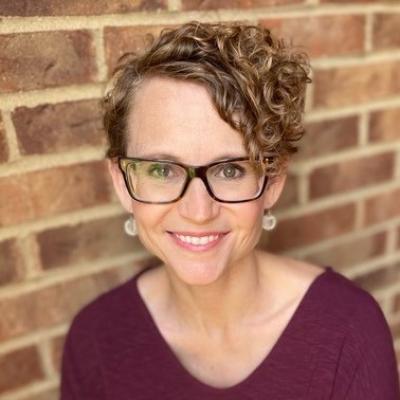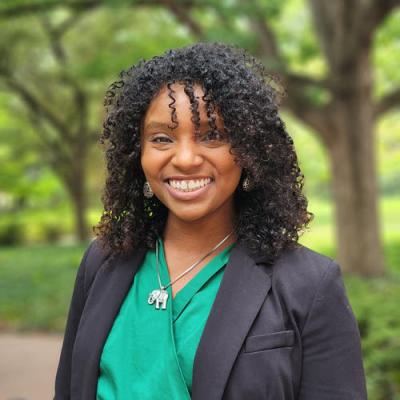SRCD Welcomes the Incoming President-Elect, Treasurer, and Governing Council Members
The Society for Research in Child Development is pleased to announce the results of our 2022 election. We congratulate and welcome the new President-Elect, Treasurer, and incoming Governing Council members listed below.
All individuals take office immediately following the 2023 Biennial Meeting in March. The President serves for a total of six years: two years each as President-Elect, President, and Past-President. The Treasurer and Members-at-Large serve on the Governing Council for six-year terms.
President-Elect

Jennifer E. Lansford
Jennifer E. Lansford, Ph.D. is a Research Professor at the Sanford School of Public Policy and Director of the Center for Child and Family Policy at Duke University. She earned her Ph.D. in Developmental Psychology from the University of Michigan in 2000 and have been a member of SRCD since 1995. Notable contributions to SRCD include serving on the International Affairs Committee from 2011 to 2017 (co-chairing the committee from 2015 to 2017) and serving on the Program Committee from 2015 to 2021 (Program Co-Chair for the 2019 Biennial Meeting in Baltimore). She also has served in numerous other national and international leadership roles like chair the U.S. National Committee for Psychological Science of the National Academies of Sciences, Engineering, and Medicine and previously chaired the U.S. NIH Psychosocial Development, Risk and Prevention Study Section. She chaired a 2021 workshop for journal editors hosted by the U.S. National Academies of Sciences, Engineering, and Medicine that focused on how psychological science journals can encompass diverse perspectives by supporting scholars, peer-review, and high-quality science.
Treasurer

Lisa M. López
Lisa M. López, Ph.D. is Professor of Educational Psychology at University of South Florida. She earned her Ph.D. in Applied Developmental Psychology from the University of Miami and completed an NSF-funded post-doctoral fellowship in Language and Literacy at the Harvard Graduate School of Education. Her research agenda involves furthering our understanding of, and improving upon, the educational and environmental opportunities of Latino DLL children in the U.S. Her main research objective is to identify normative development of school readiness skills among Latino children, applying an ecological perspective to better understand this population. Her research has been funded by NIH, IES, and ACF, and published in journals focused on both education and developmental psychology. She is past-chair of the SRCD Latinx Caucus and co-organized the SRCD Special Topics Meeting “Construction of the other: Development, consequences, and applied implications of prejudice and discrimination” held in May 2022. She has won numerous awards for her scholarly and community work with the Latine DLL population. In 2020, she published her first book (with co-author Mariela Páez) which highlights effective research-based home and classroom practices for working with DLLs and provides practical strategies geared towards the implementation of culturally and linguistically responsive instruction within early childhood classrooms.
Governing Council Members-at-Large

Lucia Alcalá
Lucia Alcalá, Ph.D. conducts empirical research guided by sociocultural theory, exploring the interaction between cultural and environmental factors in children’s development. Currently she has projects investigating cross-cultural aspects of children’s cognitive development (planning, collaboration, and executive function), development of children’s prosocial behavior in diverse families (U.S. and Mexico), and the impact of service-learning experiences in college students’ civic engagement and academic development. She earned her Ph.D. in Developmental Psychology from the University of California Santa Cruz. She was a visiting professor at the Universidad Maya de Quintana Roo before coming to California State University, Fullerton.

Stephen Asatsa
Stephen Asatsa, Ph.D. is a Lecturer of Psychology and Head of Department of Psychology at the Catholic University of Eastern Africa, Kenya having obtained his doctoral degree in Counseling Psychology from the same University in 2018. He has been a member of SRCD since 2016. He served on the Student and Early Career Council as the teaching committee representative from 2017- 2021 where he actively participated in meetings and dissertation award review.

Christia Spears Brown
Christia Spears Brown is a developmental scientist whose research focuses on children’s experiences with discrimination and the development of gender and ethnic stereotypes across middle childhood and early adolescence. She is an endowed professor in Developmental Psychology and Associate Dean of Inclusive Excellence at the University of Kentucky. She has published multiple times in every one of SRCD’s publications: Child Development, Child Development Perspectives, Monographs (both as an author and as an invited commentary), and Social Policy Report. Brown is currently the Associate Editor of British Journal of Developmental Psychology, and previously an Associate Editor of Journal of Adolescent Research. She has also served as a Consulting Editor for Child Development and Journal of Research on Adolescence. Her research and mentorship has been funded by Foundation for Child Development, National Science Foundation, Willam T. Grant Foundation, and American Psychological Association.

Esther J. Calzada
Esther J. Calzada, Ph.D. is a clinical child psychologist, a social work professor, and the Associate Dean for Equity, Inclusion and Accessibility at the Steve Hicks School of Social Work at the University of Texas at Austin. She also serve as Director of the Texas Center for Equity Promotion in the College of Education. Her research focuses on the mental health and achievement of young Latinx children and aims to incorporate influences of culture and context into models of psychosocial preventive interventions to better support Latinx children, parents and communities. Her goal in her work is to reshape scholarly narratives so that Latinx children are seen in their full humanity.

Jeffrey Liew
Jeffrey Liew, Ph.D. is a Professor of Educational Psychology at Texas A&M University. His focuses on social-emotional development and emotional self-regulation processes in children and youth. Liew is particularly interested in examining individuals’ resilience, thriving, and flourishing, including the risk and protective factors that are linked to developmental and academic or learning outcomes. He is an active member of the SRCD Asian Caucus and serve as the Chair for the SRCD Asian Caucus Mentoring committee. In addition, he serves on the SRCD Interdisciplinary Committee. His commitment for inclusive and interdisciplinary research is reflected in a recent scholarly volume that he co-edited on “Family Literacy Practices in Asian and Latinx Families: Educational and Cultural Considerations.”

Laura K. Taylor
Laura K. Taylor, Ph.D. is an Assistant Professor in the School of Psychology, University College Dublin, Ireland. As PI of the Helping Kids! lab, she studies risk and resilience processes for youth in settings of protracted conflict, as well as immigrant and refugee youth in the United States and Europe. Toward this end, her research examines how and why violence affects behaviors and attitudes related to peacebuilding, primarily during childhood and adolescence.
SECC Representative

Michelle Brown
Michelle Brown, Ph.D. is an Assistant Professor at the University of South Carolina Department of Psychology. She uses a developmental psychopathology framework to understand how interpersonal relationships influence victimized children’s risk for developing adverse socioemotional outcomes and elucidate biopsychosocial factors that influence treatment outcomes for victimized children.